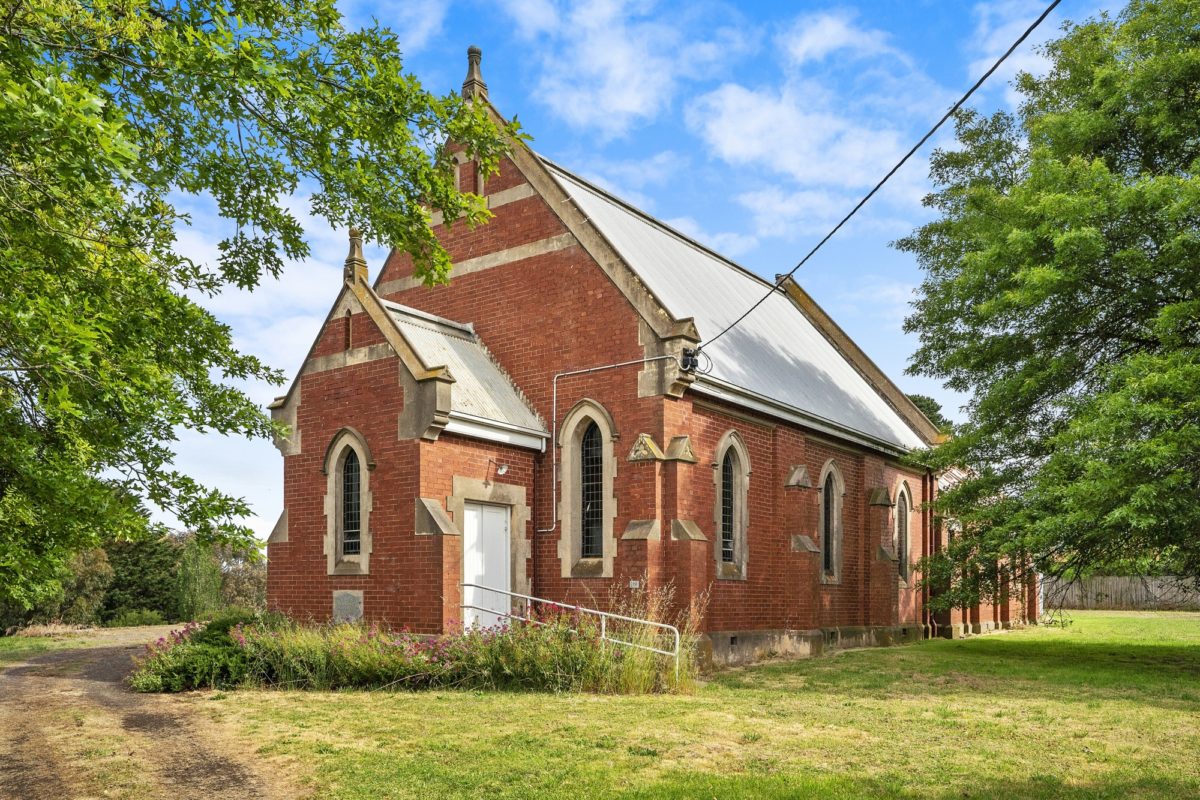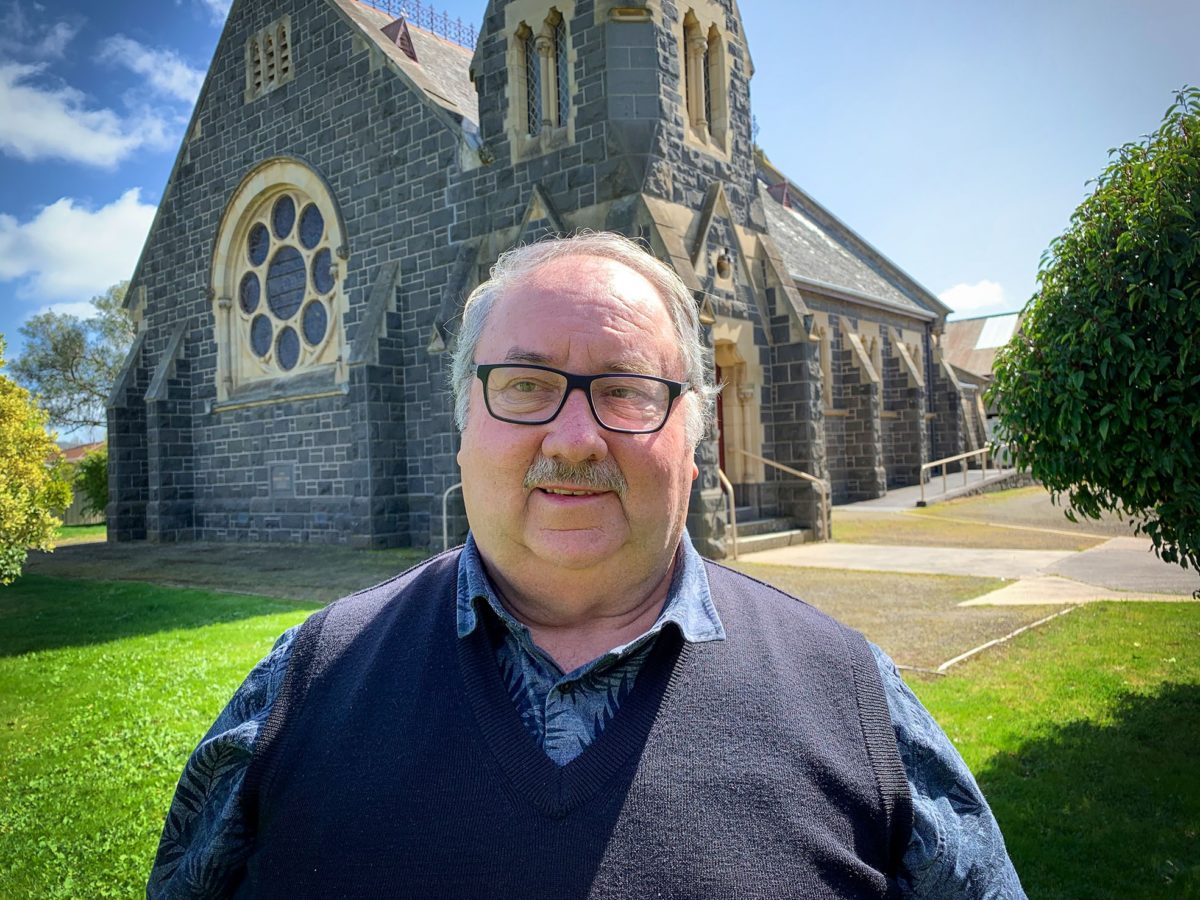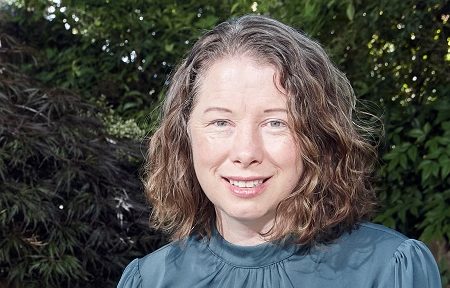By Andrew Humphries
The sale of an historic church in regional Victoria is providing an important template for how the church positions itself to meet future financial challenges.
Dwindling congregation numbers at Birregurra, near Colac, meant it made financial sense late last year to begin the process of selling the church building and adjoining manse.
That sale was settled in April and in October congregation members voted to invest the proceeds through the church’s newly-created Money for Mission financial program.
The Money for Mission program emerged from many discussions which have been going on for several years around developing new ways to sustain mission and ministry throughout Australia.
Among those involved was equipping Leadership for Mission executive officer Jenny Byrnes, who believes the program offers the church an exciting new way to raise the funds to meet future needs.
Jenny hopes the Money for Mission program will be adopted widely as congregations embrace its benefits.
“The plan is for this program to be here for the next few decades,” she says.
“It’s about wanting to create a different pathway for our mission and position the church much more strongly in a financial sense into the future.”
Uniting Church director of property services Peter Thomas says the Birregurra congregation’s decision is an example for other congregations of the advantages in using the Money for Mission program when deciding the time has come to sell church assets.
Peter says historically the church’s financial model has worked around spending capital money to fund grants programs and support itself.
Some of that money from the sale of assets has traditionally been kept by the congregation while some was shared with the wider church to fund various programs.
And while that was all well and good, once it was used up, that was it and the cupboard was bare.
The Money for Mission program, Peter says, is about doing much more with the cash gained from the sale of assets.
Through the program, money from the sale of an asset, such as land or a building, is invested in a fund to generate stronger returns, while allowing for greater flexibility around how it can be spent.
“What we’re looking to do is to transition the church to a model where it funds its missional and operational work for presbyteries and congregations through income generated by investing the capital, rather than by using the capital itself,” Peter says.
“So, as an example, you sell a property and invest the money from the sale and the income generated from that is what you live off, so you learn to live off income in supporting the resourcing of the mission, as opposed to spending capital.”
Peter says the Money for Mission program is an attractive alternative to holding on to property which, while it may generate some return in terms of rent, has ongoing costs.

Church buildings surplus to requirements can be used to generate funds for ongoing missional work.
“What we are saying to congregations is ‘look at the property you have, look at what you do and is it something that is surplus to missional needs’,” he says.
“A congregation may have a manse that hasn’t had a minister in it for 10 years and is rented to market, but you could probably get a slightly better return by selling it and investing through the Money for Mission fund.
“You don’t have to pay rates and taxes and repair and maintain the building and you don’t have problems with vacancies or tenants damaging the property, so there are a bunch of reasons to suggest that a financial investment (through selling) is simpler.”
And the beauty of it, Peter says, is that adopting the Money for Mission program makes serious financial sense while empowering congregations around asset-based decisions.
That sense of ownership, he says, is what makes it such an attractive option for congregations.
Jenny says while the Money for Mission program itself is new, congregations have been encouraged for many years to recognise that future mission should be based less on holding on to property and more around flexibility.
“In the last year we have felt that it was reaching a critical point where a lot of mission will struggle to be resourced unless we become more engaged with congregations and encourage them to think about property they don’t need any more,” she says.
“What we heard back was that there was an appetite for doing that if the program set up was simple, transparent and understandable.
“The feedback was that people would be interested in thinking they could sell property and invest it in a fund which would deliver money not only for their local mission, but would also support the wider mission of the Synod.”
Peter stresses that it is congregation members who have the final say on whether a sale goes ahead and, while they are given as much information as possible around the pros and cons of selling an asset, they are under no pressure to do so.
“If the discussion is around a block of land, for example, we’re not telling the congregation they must sell the land,” Peter says.
“What we are saying is that you have an option to sell your land and, if you do choose to sell it, the Money for Mission program is well worth considering.
“It’s about making things simpler, giving people a little bit more money through greater returns and more flexibility around how they apply that money to their congregation’s needs.”
Jenny agrees flexibility and the ability to meet change is an important part of the program.
“I think it’s necessary and we need to be far more flexible to respond quickly to different needs and demands,” she says.
“It really makes more sense into the future that we’re not locked into property that we are not always in full control of.
“We’re not property managers as such and it would be good to realise that if we don’t have to manage property, we can step away from doing that.”

Colac minister Stephen Ratcliffe says the Money for Mission program will be of tremendous benefit.
Peter says more congregation members are becoming aware of the Money for Mission model and what it can help them to achieve.
“Congregation members are saying ‘yes, this is an interesting concept that might work for us’ and they want to find out more details around it,” he says.
In many instances it will make better financial sense to sell an asset and invest proceeds in the Money for Mission model than it would to either keep it as a rental property or sell it and use the sale proceeds in the traditional way through interest-only mission funds.
“So through choosing Money for Mission you will get a better return than you otherwise would and you also have the freedom around how you spend that income,” Peter says.
He points to the Birregurra example as one where a congregation has carried out a full investigation before taking advantage of the Money for Mission program.
Colac Uniting Church minister Stephen Ratcliffe, who oversees the Birregurra congregation, says the program will be a real game-changer as the church repositions for the future and congregations consider how to make best use of facilities which are now surplus to requirements.
“In our case, it was getting to the point where the Birregurra community had a building they couldn’t maintain and there were too few members anyway, so a sale made real sense,” Stephen says.
He says congregation members embraced the sale in the knowledge that it meant the years they had spent building up an asset weren’t wasted.
Now Stephen hopes Birregurra will show other Uniting Church congregation members what can be achieved when dealing with assets that are no longer required.
“We do have an issue around buildings that are surplus to our needs and in some instances congregation members may be hanging on to them simply because they are there,” he says.
“I believe it’s best if they free themselves of those buildings and use the money in more intentional ways.
“I’m a big supporter of the Money for Mission program and what it will achieve in our region, and it’s quite exciting to imagine how that can be replicated elsewhere.”
Stephen says their share of the money gained from the Birregurra sale will allow the Uniting Church to better serve new and existing congregation members throughout the region.
“We are seeing an influx of migrants and, while we haven’t connected with them greatly yet, we are looking at ways of engaging with them in the future and the Money for Mission program is going to help us do that,” he says.
Peter says congregations which take up the program when deciding to sell assets can take pride in the fact they are making a substantial contribution towards the church’s financial future.
“It’s a legacy for the wider church because some of the investment earnings go there to support and sustain its operation and, in turn, support grants and missional resourcing across the Synod,” he says.
“It’s a way of providing funds for those in need to do missional work, who might not otherwise have the money to do it.”
If you would like to know more about the Money For Mission program, contact your presbytery secretary or presbytery minister. Failing that contact Peter Thomas on [email protected] or 0410 487 373


